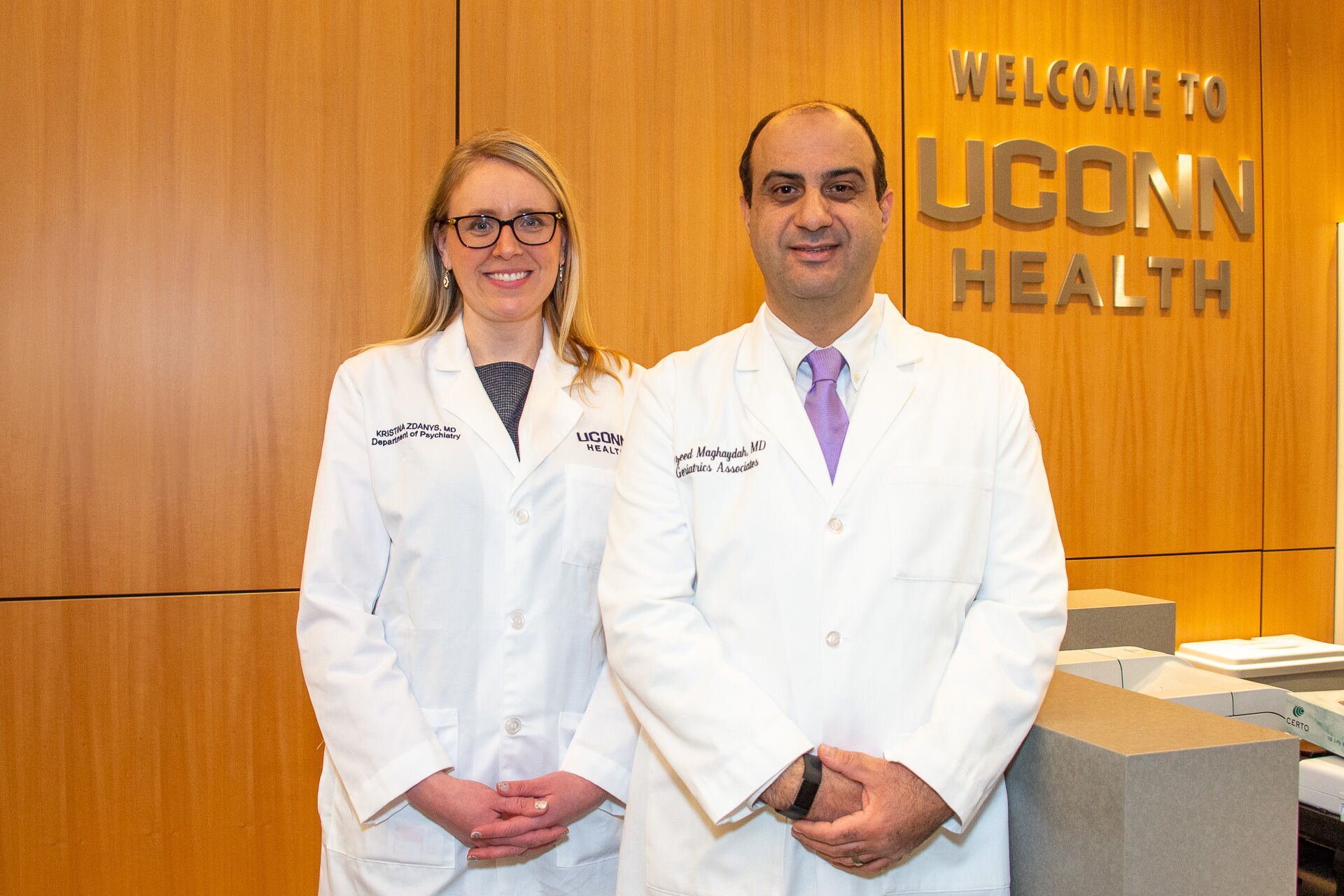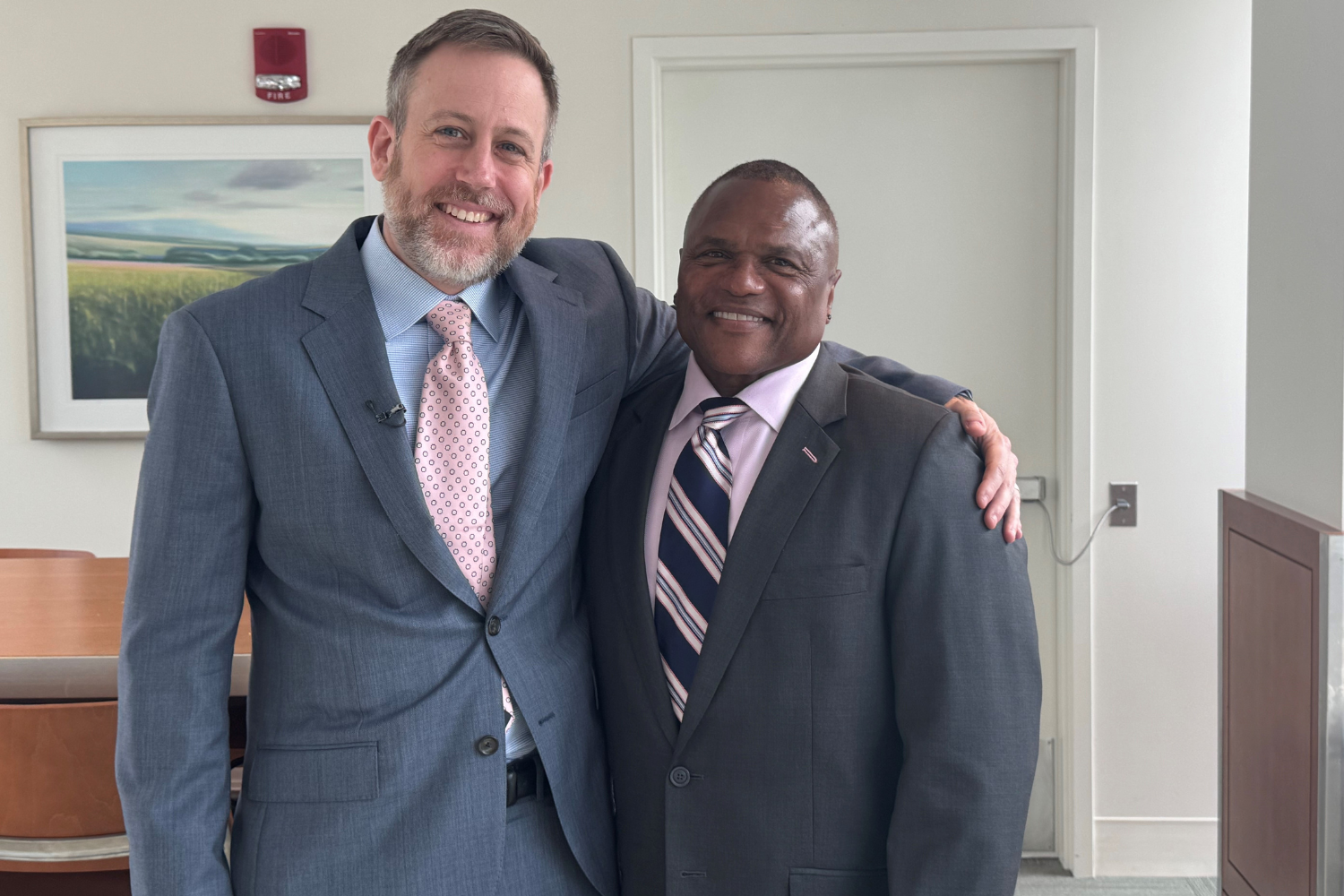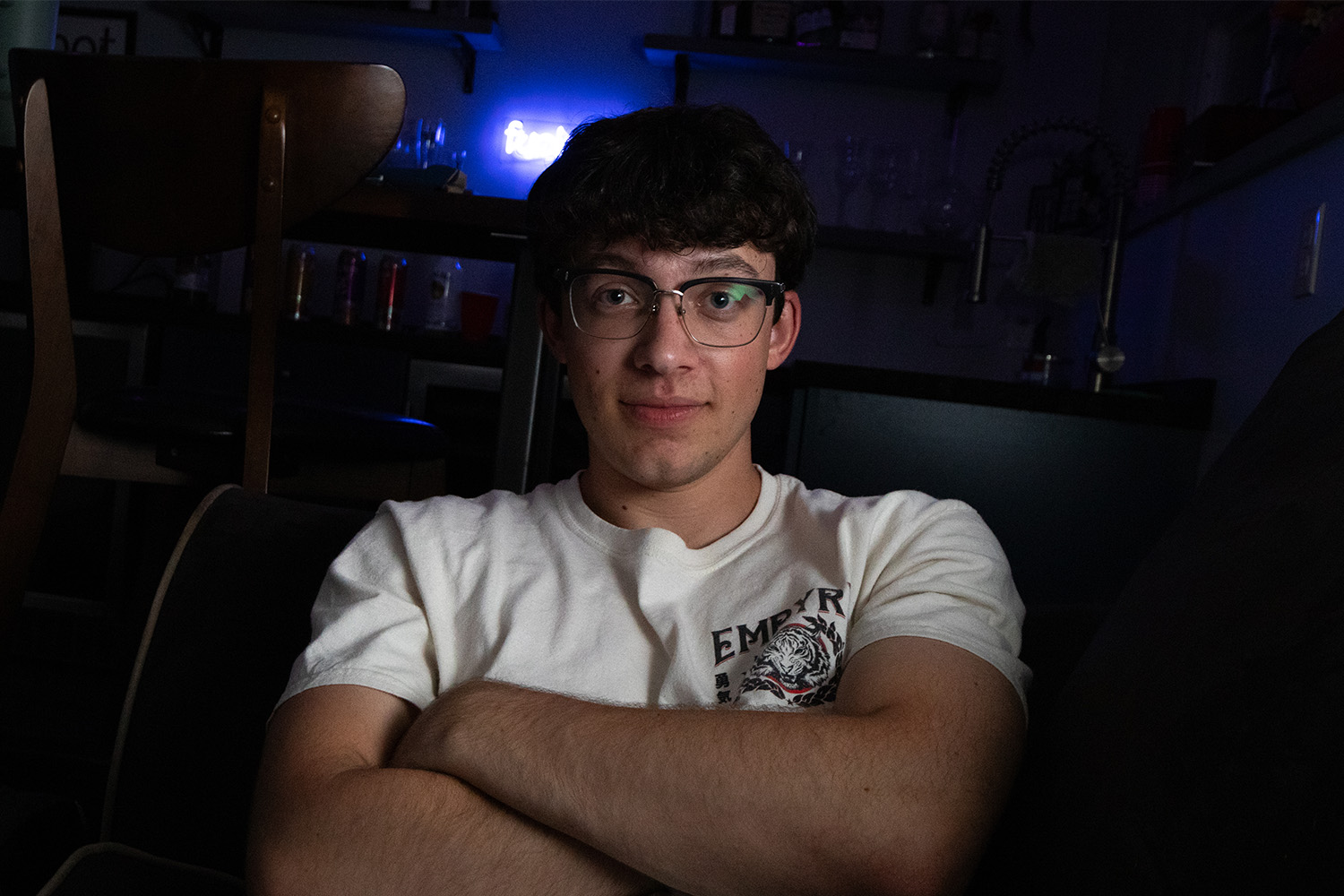Dr. Yazeed Maghaydah and Dr. Kristina Zdanys have been named co-directors of the James E. C. Walker M.D. Memory Assessment Program in the UConn Center on Aging at UConn Health.
The Memory Assessment Program provides a full range of diagnostic services for patients who are concerned about memory related difficulties, as well as primary clinical care for those who have already been diagnosed with a memory disorder.
Both Maghaydah and Zdanys have been key members within this growing Memory Assessment Program. Maghaydah an internist and geriatrician with specialization in unique needs of older adults, including chronic diseases, cognitive loss, memory impairment, adverse effects of medications. Zdanys has specialized training in geriatric psychiatry, and has expertise in medication and psychotherapy treatments in the care of older patients with a variety of neuropsychiatric symptoms, including those seen in Alzheimer’s disease and other forms of dementia.
The Center on Aging at UConn Health and the Memory Assessment Program are unique in the industry. Being located within the Center on Aging and a geriatric clinic facilitates multidisciplinary approaches in addressing the unique individual needs of older patients.
“Memory disorders by nature are interdisciplinary: medical, neurological, and psychological. An integrated team approach is effective and important,” states Zdanys.
When memory issues arise, it can be frustrating and upsetting. A proper diagnosis of memory issues is important.
There are several types of dementias, with Alzheimer’s disease being most prevalent. The doctors in the Memory Assessment Program evaluate, diagnose and treat a range of memory disorders, from normal cognitive changes seen in aging to Alzheimer’s disease and other neurocognitive disorders such as Vascular, Lewy Body, Frontotemporal and Parkinson’s disease dementias. Geriatric psychiatrists often are involved to treat associated behavioral symptoms.
“What is special about the service here is providing the comprehensive and multidisciplinary approach to patient’s memory issues and dementia,” says Maghaydah.
The multidisciplinary clinic includes medical geriatrics, geriatric psychiatry, neuro-psychology, social work, neuroradiology and neurology. “We focus on the patient as a whole with a comprehensive evaluation and look at the big picture and how dementia is affecting the whole person and how other co-morbidities will contribute to a dementia care plan,” states Maghaydah.
The team meets bi-weekly, bringing multidisciplinary providers together to discuss cases through which they together determine the most accurate diagnosis and best approach to treat and provide care for each patient and family.
Diagnosis and care plan are established over the course of 2-3 clinic visits. Approximately fifty percent of patients have their own primary care provider and the team works closely with them to communicate these findings and establish follow-up. For others, primary care can also be offered by clinicians at the geriatrics clinic.
Multidisciplinary approaches are also used to determine the need for long term care for the patient and support for caregivers. Providing care, support, and education to the family/caregiver is a crucial part of the patient care.
The team has experts who are able to facilitate discussions regarding safety issues, driving, patient support services, living arrangements, surrogate decision-making, living wills, conservatorship, family support and counseling.
Zdanys appreciates the ability to collaborate with social work in these areas and encourages families to participate in UConn’s caregiver education series in conjunction with the Alzheimer’s Association.
In their new roles, Drs. Maghaydah and Zdanys will continue to enhance the program’s clinical and research operations, thus enhancing the regional and national profile of this unique multidisciplinary program.
Their goals as co-directors include expanding services to provide comprehensive care through complete evaluation, accurate diagnosis and support to families and caregivers. They would like to include more students as a teaching site and move forward with engaging patients to take advantage of research available in the Center and at UConn Health.
“All of these efforts will not only lead to better outcomes for our patients but will also help develop greater links between this clinic and already strong research programs addressing dementia and related health issues in the Center on Aging as well as the Departments of Psychiatry, Neuroscience and elsewhere,” says Dr. George Kuchel, Director, UConn Center on Aging at UConn Health.



